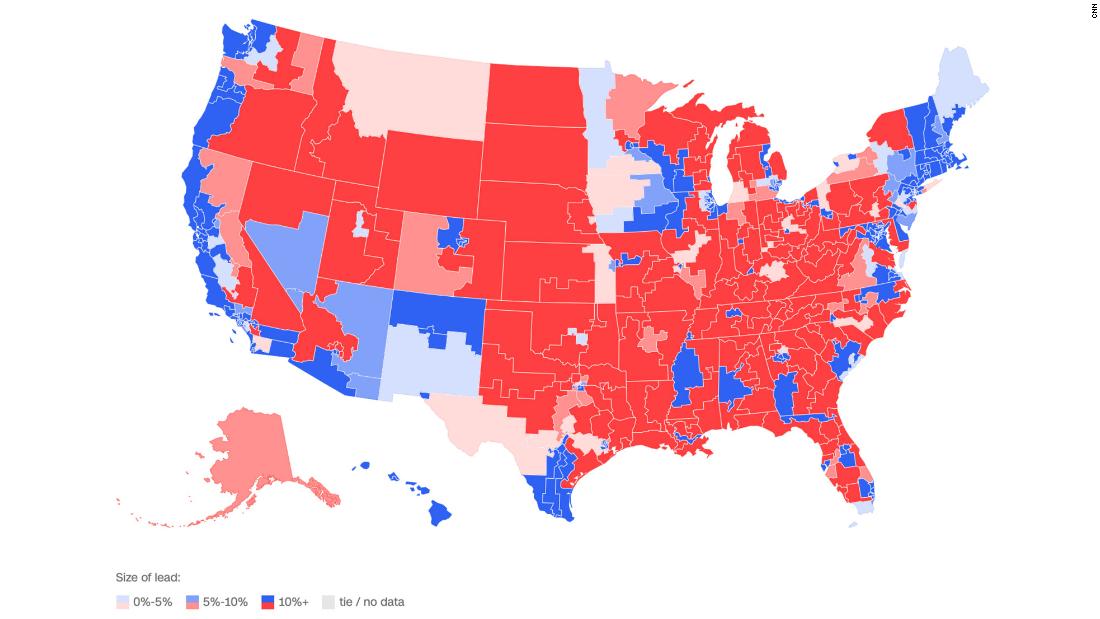
But while Walden may not be a household name in national political circles, his retirement is a telling signal of how likely Republicans believe they are to retake the House majority they lost in the 2018 midterm elections. In short: Not very likely. At all.
Here are two simple reasons why:
1) Walden is the top Republican on the House Energy and Commerce Committee. And he has time left on his chairmanship. (Republicans have a six-year term limit on committee chairmanships.) Meaning that if Republicans took back the majority in the 2020 election, Walden would run one of the most powerful committees in the House for two more years.
In his retirement statement, Walden said this: "I'm also optimistic that a path exists for Republicans to recapture a majority in the House, and that I could return for two more years as chairman of the House Energy and Commerce Committee."
To which I say this: Riiiiiight.
There is NO way -- short of some sort of medical diagnosis -- that if Walden truly believed Republicans were taking back the House in a year, he'd be voluntarily walking away from the chance at being a hugely powerful chairman for the following two years. No way. Just not how Washington works.
2) Walden is close to House leadership. The Oregon Republican spent two elections -- 2014 and 2016 -- as the head of the National Republican Congressional Committee, one of a handful of leadership gigs among House GOPers. In that role, he worked closely with the likes of now-Minority Leader Kevin McCarthy of California, a huge political junkie, and now-Minority Whip Steve Scalise of Louisiana.
While Walden's seat isn't going to be competitive between the two parties -- President Donald Trump won the district by 20 points in 2016 -- that Walden is willing to walk away from it and that the leadership isn't trying to convince him (or wasn't able to convince him) to stay speaks volumes. If the party leadership saw the majority not only within reach but also better than an even bet, there's no way that a "made" guy like Walden -- someone in the party's good graces and who would stand to benefit -- walks away.
All retirements aren't created equal in politics. Some are just solo decisions without any broader consequences. Others -- like Walden's -- send a clear signal about the broader mindset among a party.
And, at least at the moment, that mindset seems negative when it comes to winning back the House. Which, candidly, makes sense looking at the political environment. While the economy is perceived as strong and Republicans need a relatively small number of seats to get back the majority (18-seat net gain), Trump's weak job approval rating and wild unpredictability have combined to create a national political dynamic that appears to favor Democrats.
"A growing number of Republicans are privately warning of increasing fears of a total wipeout in 2020: House, Senate, and White House.
"House Republicans in swing districts are retiring at a very fast pace, especially in the suburbs of Texas and elsewhere. (Republicans talk grimly of the 'Texodus.') Rep. Greg Walden — the top Republican on the House Energy and Commerce Committee, and the only Republican in Oregon's congressional delegation — yesterday shocked the party by becoming the 19th GOP House member to not seek re-election."
Yeah, that about sums it up. Walden's retirement matters. Bigly.
"how" - Google News
October 30, 2019 at 04:04AM
https://ift.tt/2JxKb1c
Here's how you know Republicans don't think they are winning back the House in 2020 - CNN
"how" - Google News
https://ift.tt/2MfXd3I
Bagikan Berita Ini














0 Response to "Here's how you know Republicans don't think they are winning back the House in 2020 - CNN"
Post a Comment